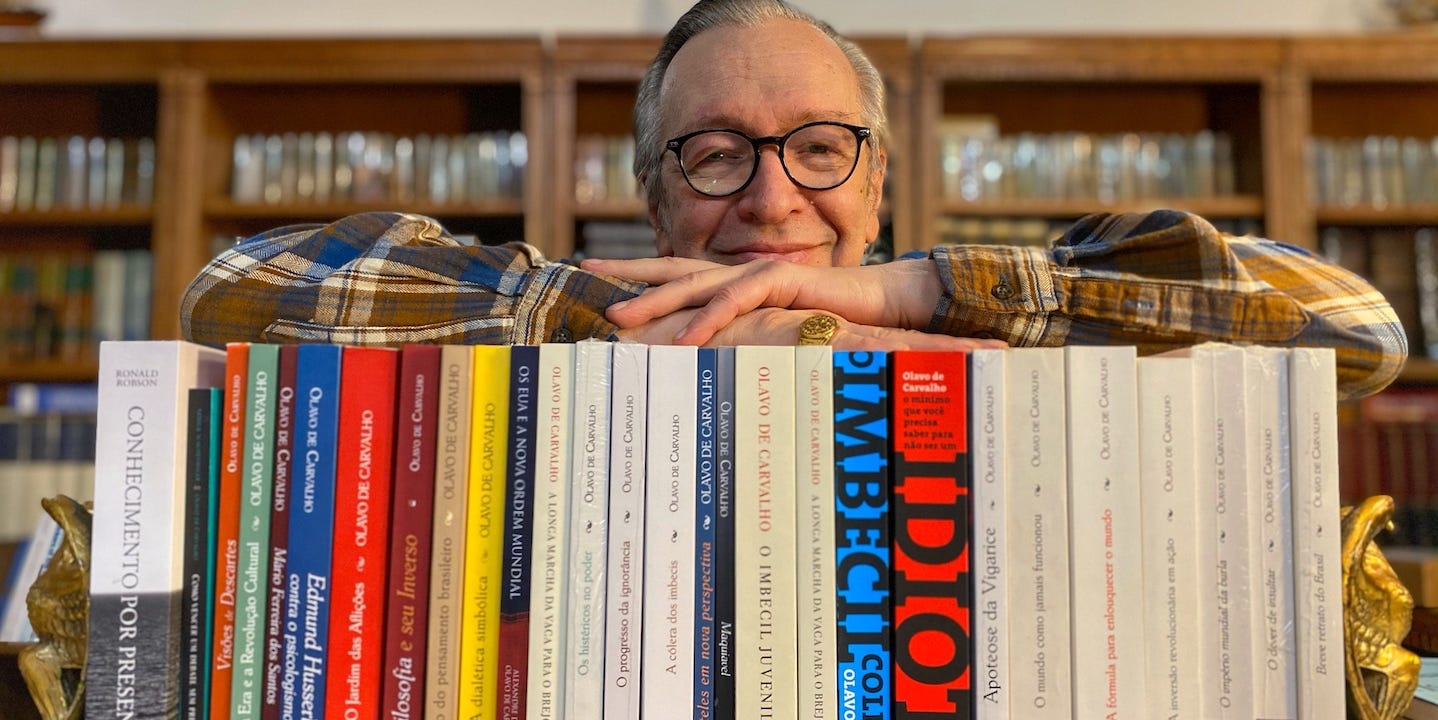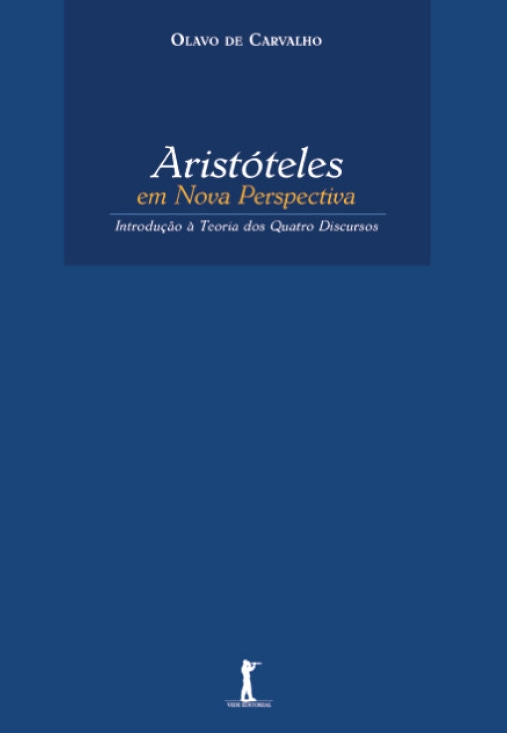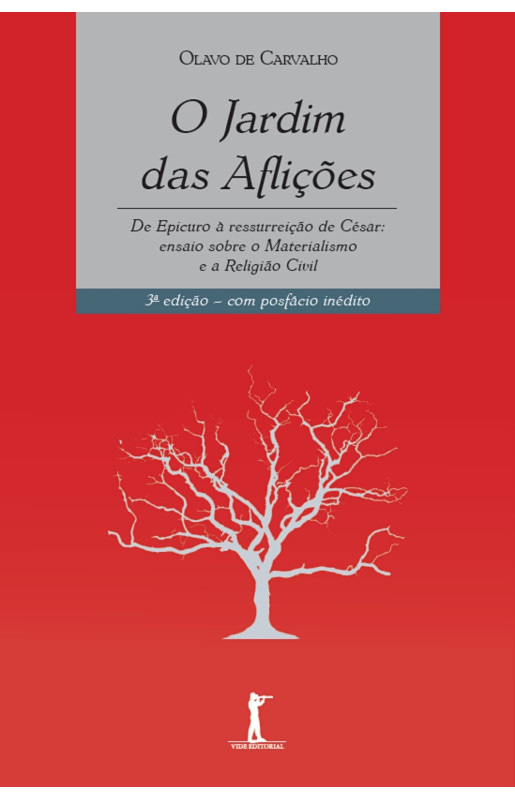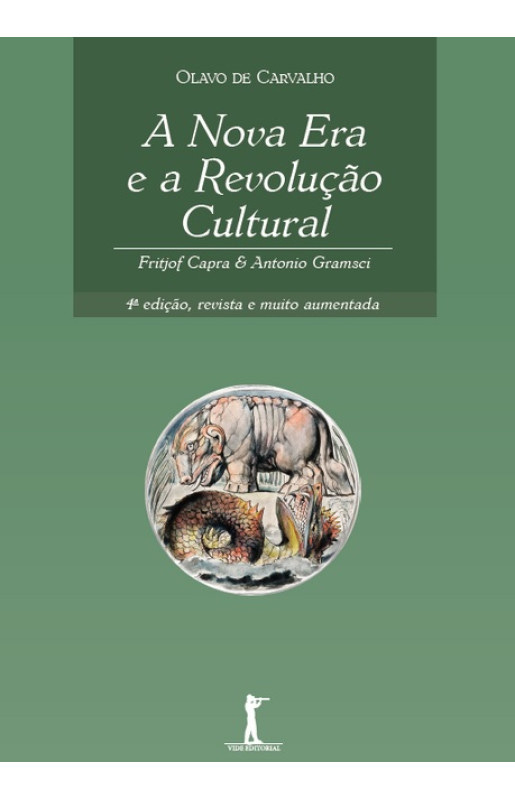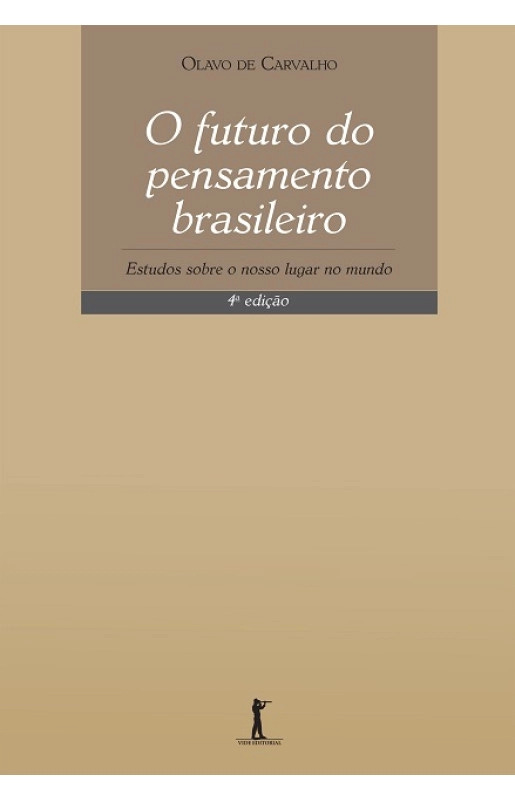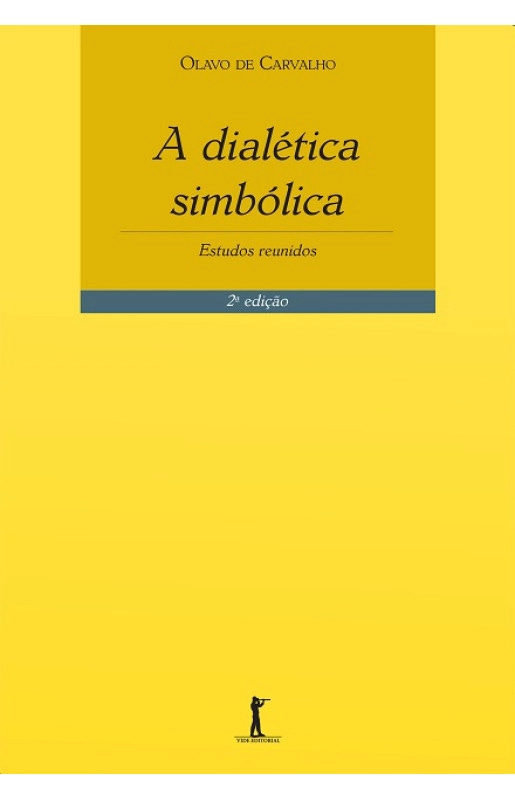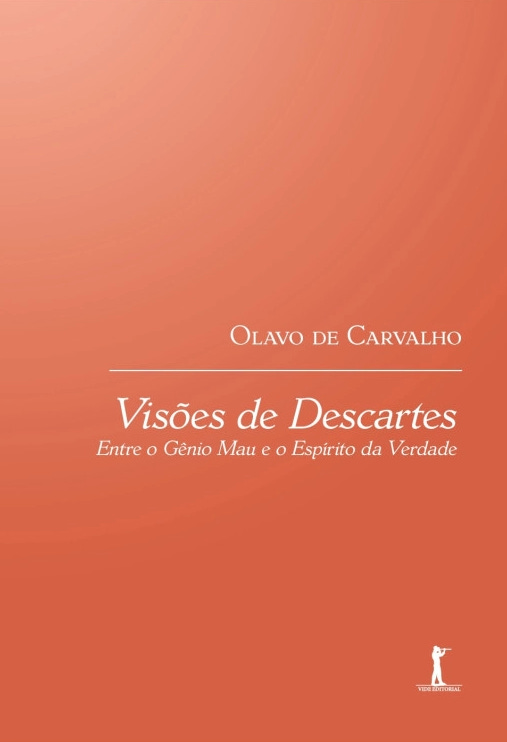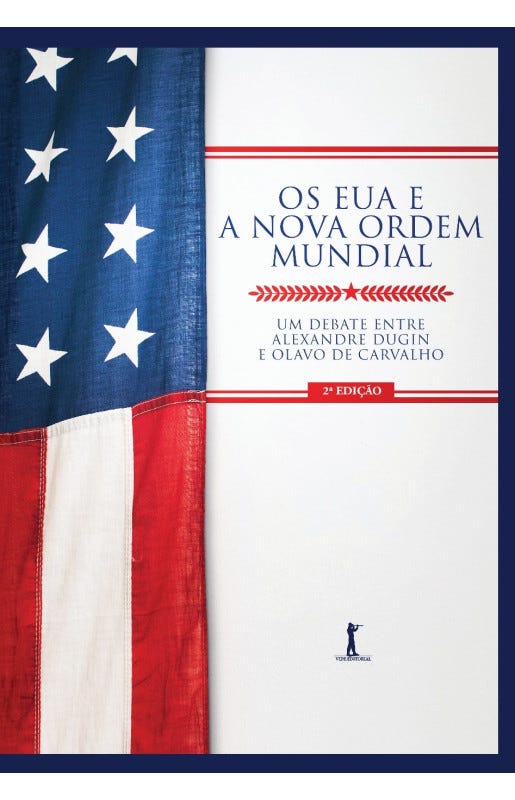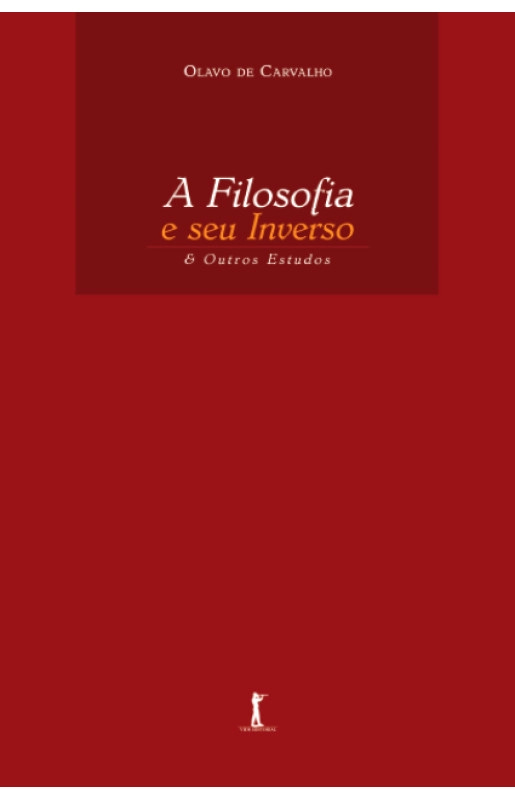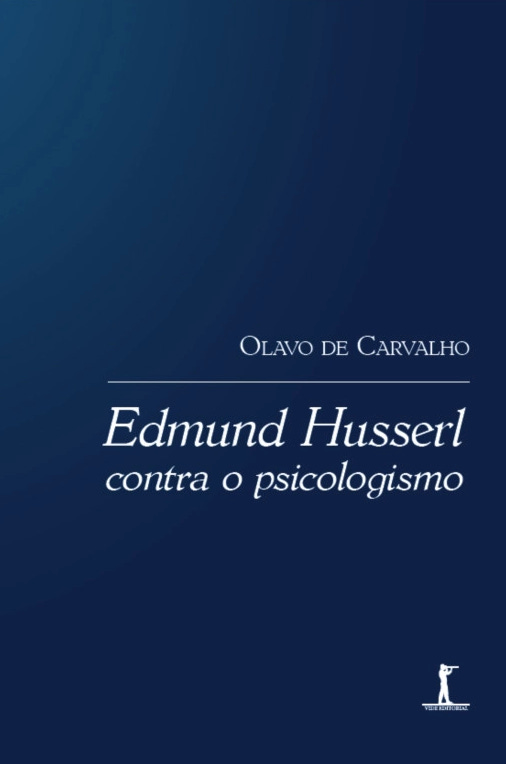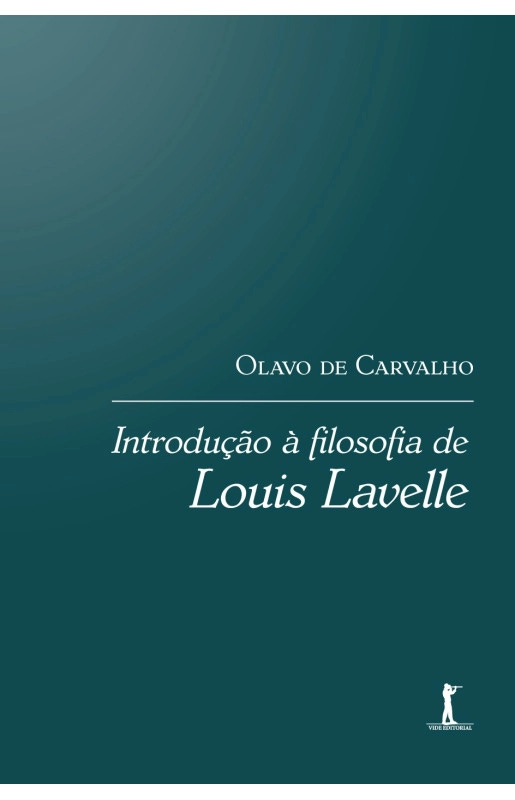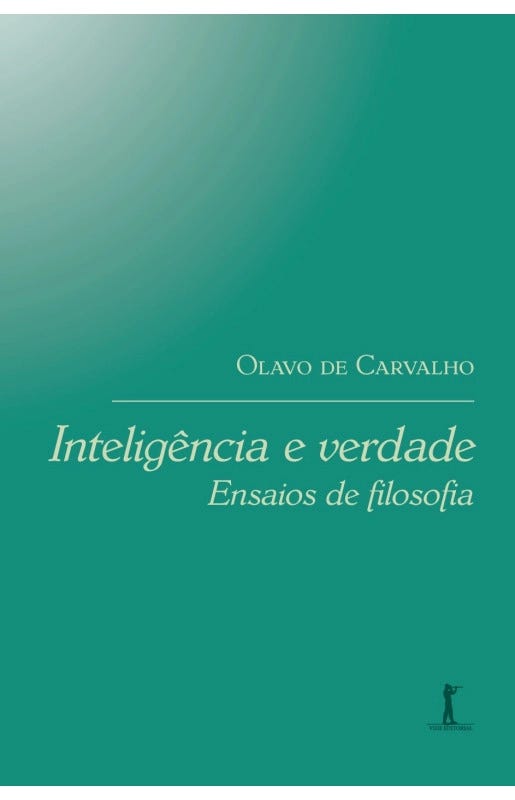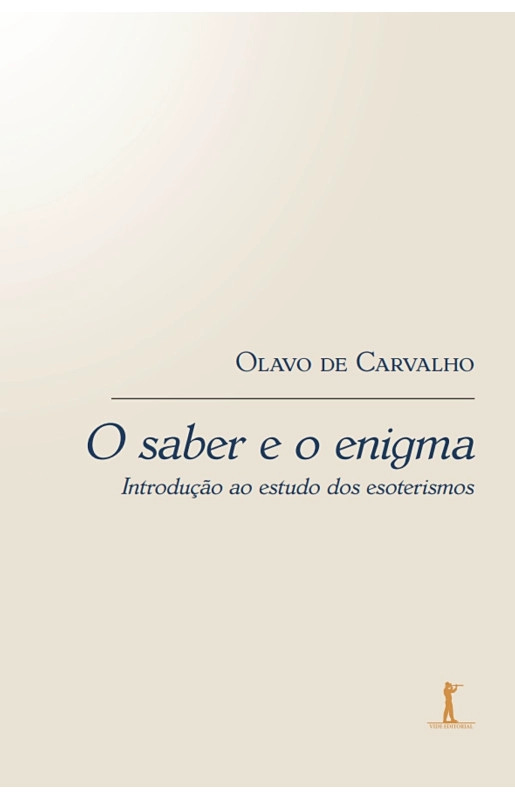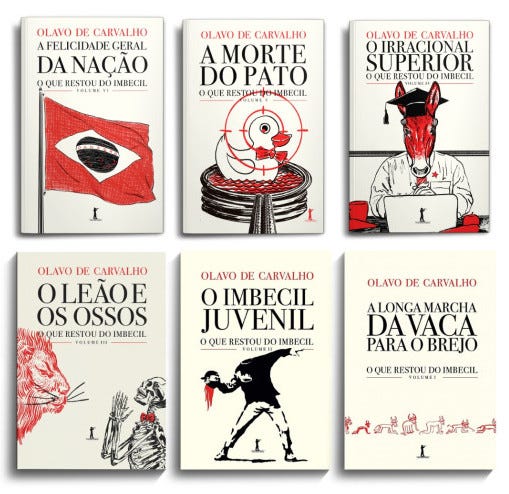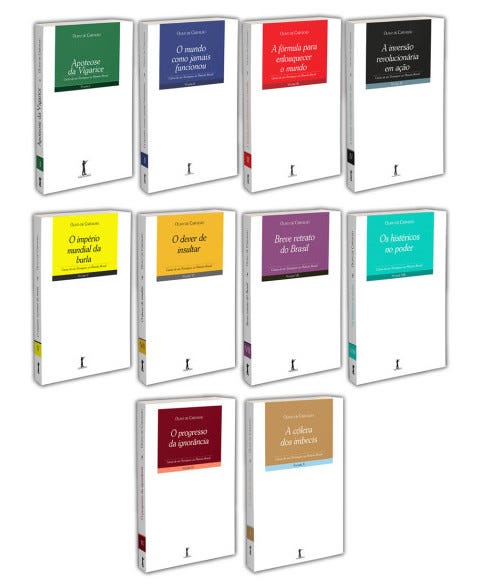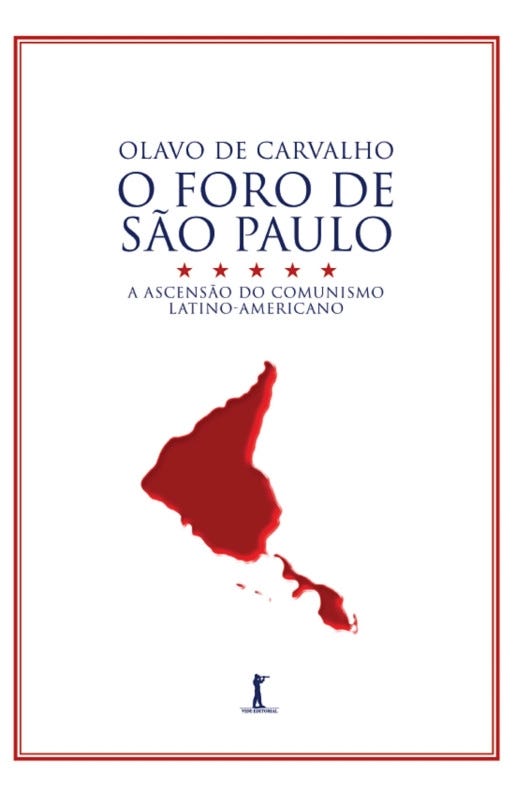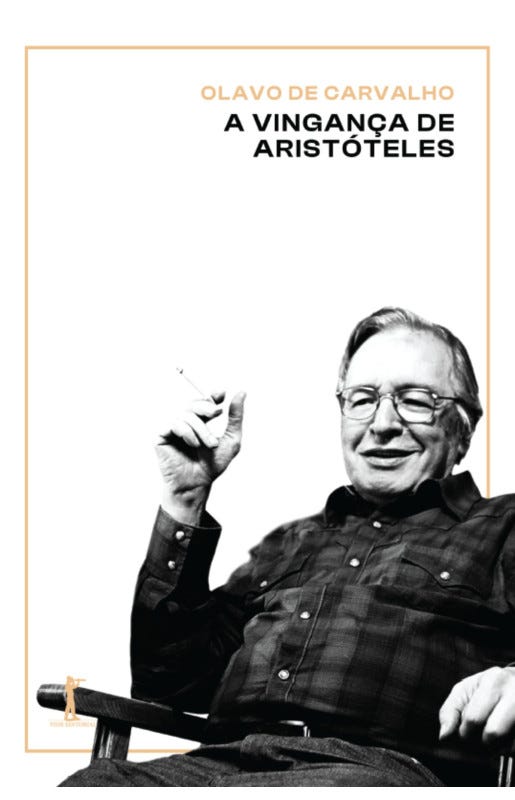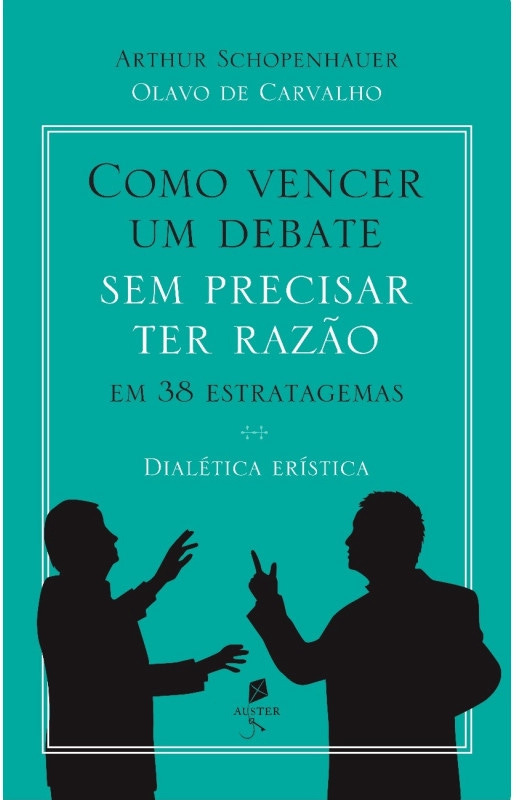Works of Olavo de Carvalho
Translation rights: Please send your request to: academy[at]olavodecarvalho.com
List of Publications
Aristotle in a New Perspective
An Introduction to the Theory of the Four Discourses
["Aristóteles em nova perspectiva: Introdução à Teoria dos Quatro Discursos"] 1st edition 1994, latest edition 2013.
This book is an original contribution to universal philosophy and to Aristotelian studies. In the author's own words, there is a core idea embedded in the works of Aristotle, and it has escaped the attention of almost all his readers and commentators from antiquity to the present day. Even those who have grasped it down through the millennia—I know of only two—merely noted it in passing without explicitly affording it any decisive importance with regard to a comprehensive understanding of Aristotle’s philosophy. And yet, it is the very key to such an understanding, if by that we mean the act of capturing the unity of a man’s thought right from his own intentions and values rather than judging it from the outside in; an act that implies carefully respecting what is written between the lines, as it were, instead of smothering the work under some wrongheaded idolatry of the reified text, the very tomb of thought. I call it the Theory of the Four Discourses, and it can basically be summed up as follows: human discourse is a single power that manifests in four distinct ways: poetics, rhetoric, dialectic, and analytics (logic).
"If Voegelin had read this, he would have incorporated Olavo de Carvalho’s thought into his own to explain how we proceed from perception to science.”—Frederick Wagner, Eric Voegelin Society, letter to the Author, February 14th, 2005.
“I have known Olavo de Carvalho and his work since the spring of 2006. At that time, I had the pleasure to edit his very fine manuscript, entitled “Aristotle in a New Perspective”. After editing the manuscript, I took the uncharacteristic step of forwarding it (with the author's permission) to a few of my former professors at the University of Notre Dame. I did so because I was quite certain that the manuscript marked a highly original contribution to our understanding of Aristotle, which is no easy feat given the sheer volume of scholarship surrounding this ancient thinker.” —Jodi Bruhn, Ph.D. Research Fellow, Institute on Governance, Ottawa, Canada.
The Garden of Afflictions
From Epicurus to the Resurrection of Caesar: An Essay on Materialism and Civil Religion
"O Jardim das Aflições: De Epicuro à ressurreição de César: ensaio sobre o Materialismo e a Religião Civil"—1st edition 1995; latest edition 2019.
In the author's own words, the fundamental thesis of this essay is that the history of the West is shaped by the idea of the Empire and its successive attempts at restructuring; despite its different clothing, the ultimate goal remains the same: to expand the domains of the Empire to the limits of the visible world.
“If his work distinguishes itself from the shallow and pedantic prose of contemporary philosophers, it is mainly for its lively and good humored style, for its generous erudition and for its tireless search for intellectual honesty.”—A. F. BORGES.
The New Age and the Cultural Revolution
Fritjof Capra & Antonio Gramsci
“A Nova Era e a Revolução Cultural: Fritjof Capra & Antonio Gramsci"—1st edition 1994, latest edition 2019.
In this book, Olavo de Carvalho describes the impact of the works of Fritjof Capra and Antonio Gramsci on Brazilian culture and politics.
The Future of Brazilian Thought
Studies on Our Place in the World
“O Futuro do Pensamento Brasileiro: Estudos Sobre o Nosso Lugar no Mundo”— 1st edition 1997, latest edition 2016.
Olavo de Carvalho introduces the reader to the four main Brazilian intellectuals and their contributions to universal culture—Gilberto Freyre, Mário Ferreira dos Santos, Miguel Reale, and Otto Maria Carpeaux—and meditates upon the incapacity of Brazilian society to recognize and learn with its greatest minds.
Symbolic Dialectic
“A Dialética Simbólica”— 1st edition 2007, latest edition 2015.
This book has some of Carvalho’s greatest essays on poetics and dialectics: “Literary Genres: Their Metaphysical Foundations”, based upon the symbolism of traditional languages, Carvalho restores the distinction among the literary genres and their correlation with reality; “Symbols and Myths in the film ‘The Silence of the Lambs’.” Olavo de Carvalho presents an original analysis of the film The Silence of the Lambs and uncovers the traditional initiatory structure that underlies Jonathan Demme’s Academy Award-winning thriller.
Machiavelli or the Demonic Confusion
"Maquiavel ou A Confusão Demoníaca”, 1st edition 2011, latest edition 2019.
The Prince is one of the most studied books in the political sciences. Olavo lays out the real truth behind Machiavelli and The Prince. Far from being some type of scholar or objective political scientist, Machiavelli laid traps for his readers. He quoted the Bible, but would flip its meaning on its head to spread confusion. Stalin and Hitler both studied Machiavelli. He posed as a realist when, in fact, his analysis was the height of naivety.
Visions of Descartes
Between the Evil Genius and the Spirit of Truth
“Visões de Descartes: Entre o Gênio Mau e o Espírito da Verdade” (2013).
The USA and the New World Order
A Debate Between Olavo de Carvalho and Aleksandr Dugin
“Os EUA e a Nova Ordem Mundial: Um debate entre Olavo de Carvalho e Aleksandr Dugin” (2012).
Both participants respond to the following question:
“What are the historical, political, ideological, and economic factors and actors that now define the dynamics and configuration of power in the world, and what is the U.S. position in what is known as the New World Order?”
Philosophy and the Inverse Thereof
“A Filosofia e o seu Inverso” (2012).
“No one described this spirit better than Eric Voegelin when he stated that, as the old "cosmological" sense of life orientation, in which the order of existence appeared as an image of the cosmos, was lost, philosophy emerged as an attempt to find a new ordering principle, no longer in the contemplation of the physical universe, but in the interiority of the soul. In the general confusion of the world, the philosopher seeks to order their own soul to take it as a measure for assessing the external disorder.”
—Chapter “Philosophy and the Inverse Thereof”
Edmund Husserl Against Psychologism
“Edmund Husserl contra o Psicologismo” (2020)
Introduction to the Philosophy of Louis Lavelle
“Introdução à filosofia de Louis Lavelle” (2021)
This volume is based on the course about the philosophy of Louis Lavelle, delivered by Olavo de Carvalho in May 2013, in Virginia. Divided into six chapters, the content ranges from the biographical aspects of the French philosopher's career to the explanation of the main concepts of his philosophy.
Carvalho introduces the concept that Lavelle's dialectical method combines inner experience with logical reasoning with great subtlety. Readers of this edition, especially those who read Lavelle's books, need the most disciplined attention and the most devoted sincerity. As a result, they can expect the widening of their own consciousness and awareness and benefit from a sharper understanding of philosophy—or reality itself, if they prefer.
This book is an introduction to the French author’s works while it contains great insights of Carvalho as he is seeking the original purpose of philosophy as a pursuit of knowledge in one’s consciousness. Louis Lavelle was an important intellectual reference for Olavo de Carvalho and the study of both philosophers is more relevant today than ever.
The Consciousness of Immortality
A consciência de imortalidade (2021)
“If we are immortal, we must be so in essence and not by accident. Immortality is, therefore, our true condition and the realm of reality in which we truly exist. In this case, the present bodily life is nothing more than a tiny fraction of our reality, a momentary appearance that veils our true substance. Consequently, all the knowledge we can acquire within the confines of bodily existence is merely an appearance within an appearance. Even though it may grasp genuine aspects of reality, it cannot find its own foundation within itself; rather, it must seek it in the sphere of immortality.”
—Chapter “Immortality as a Premise of the Philosophical Method.”
Intelligence and Truth: Essays on Philosophy
“Inteligência e Verdade: Ensaios de Filosofia” (2021)
The Knowledge and the Enigma
“O Saber e o Enigma” (2022)
The Collective Imbecile: Brazilian Incultural News
“O Imbecil Coletivo: Atualidades inculturais brasileiras”— 1st edition 1994, latest edition 2021.
Since its first release, this title has always been one of Carvalho’s best sellers in Brazil. Some well-spoken intellectuals, with their ideas, are put together to prove that instead of remaining the intelligentsia they are known for, Olavo de Carvalho exposes their ignorance and dishonesty. The reader is introduced to the phenomenon he called ‘collective imbecile,’ meaning a class of highly educated personas who stupify one another with their ideas—along with his theory called ‘cognitive parallax’—that is, a disconnection between the axis of intellectuals’ theoretical construction and the axis of their lived experience.
What Was Left Out from The Imbecile
A series in 6 volumes:
Vol. 1: The Cow's Long March to the Swamp “A Longa Marcha da Vaca para o Brejo”— 1st edition 1998, latest edition 2019.
Vol. 2: The juvenile imbecile “O imbecil juvenil”
Vol. 3: The lion and the bones “O leão e os ossos”
Vol. 4: The superior irrational “O irracional superior”
Vol. 5: The death of the sitting duck “A morte do pato”
Vol. 6: The general happiness of the nation “A felicidade geral da nação”
Letters from an Earthling to Planet Brazil
Series in 10 volumes:
Vol. 1: The Apotheosis of Dishonesty (2013)
Vol. 2: The World as It Never Worked (2014)
Vol. 3: A Formula to Drive the World Crazy (2014)
Vol. 4: Revolutionary Inversion in Action (2015)
Vol. 5: The World Empire of Buffoonery (2016)
Vol. 6: Duty to Insult (2016)
Vol. 7: A Brief Portrait of Brazil (2017)
Vol. 8: Hysteria in Power (2018)
Vol. 9: The Progress of Ignorance (2019)
Vol. 10: The Wrath of the Imbeciles (2019)
The São Paulo Forum: The Rise of Latin American Communism
O Foro de São Paulo: ascensão do comunismo latino-americano (2022)
A vingança de Aristóteles
Aristotle's revenge (2024)
How to Win a Debate with No Need to Be Right: Comments on Arthur Schopenhauer’s 'Eristic Dialectics'
(Translator & Editor). Original title: “Como Vencer Um Debate Sem Precisar Ter Razão, Em 38 Estratagemas. Dialética Erística.” 1st edition 1997, latest edition 2019. Besides rendering Arthur Schopenhauer’s “Die kunst, Recht zu Behalten” into Portuguese, Olavo de Carvalho furnishes that little handbook against intellectual dishonesty with an illuminating introduction, footnotes, and commentary on the writings of the German philosopher.
[To be updated]




